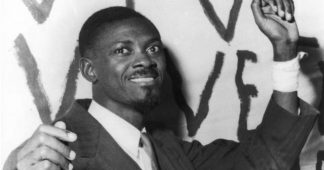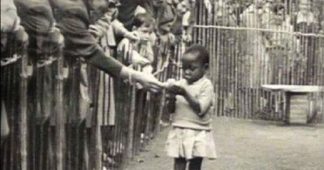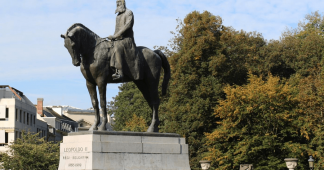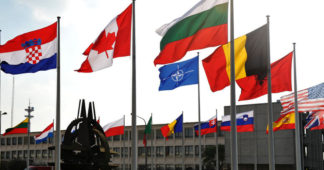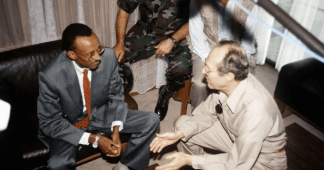Lumumba served as the first prime minister of the Democratic Republic of the Congo (DR Congo) from June until September 1960. He was murdered by Belgian mercenaries the following year with the support of the CIA. His body was dissolved in acid and never found.
Jun 20, 2022
On Monday, Belgian Prime Minister Alexander De Croo recognized the “moral responsibility” of his country’s authorities for the assassination in 1961 of Congolese politician and independence leader Patrice Lumumba.
“I would like, in the presence of his family, to present in my turn the apologies of the Belgian government,” he said.
Lumumba served as the first prime minister of the Democratic Republic of the Congo (DR Congo) from June until September 1960. He was murdered by Belgian mercenaries the following year. His body was dissolved in acid and never found.
In 1999, former Belgian police chief Gerard Soete admitted publicly to being involved in Lumumba’s killing and dissolution of his body in acid.
He also said that he kept his golden tooth and finger parts as “a kind of hunting trophy.” He died without being prosecuted for this heinous crime.
“It is a painful and unpleasant truth,” De Croo said during a ceremony organized at the Egmont Palace in Brussels on the occasion of the restitution of Lumumba’s remains.
Lumumba was a fiery critic of capitalism and colonialism, particularly of Belgium’s rapacious rule over the Congo.
Besides Belgium, participants in the conspiracy that resulted in his murder involved Sergeant Joseph Mobutu, the warlord Moïse Tshonmbé and UN blue helmets, with the CIA and MI6 in the shadows.
Belgium’s federal prosecutor Frederic Van Leeuw handed over to Lumumba’s family on Monday a box containing the slain leader’s tooth — his last remains.
The ceremony came only days after King Philippe of Belgium’s historic visit to DR Congo, which was billed as a chance to build new ties after atrocities committed during colonial rule.
The Belgian Congo remained a colony until DR Congo gained its independence in 1960.
We remind our readers that publication of articles on our site does not mean that we agree with what is written. Our policy is to publish anything which we consider of interest, so as to assist our readers in forming their opinions. Sometimes we even publish articles with which we totally disagree, since we believe it is important for our readers to be informed on as wide a spectrum of views as possible.
